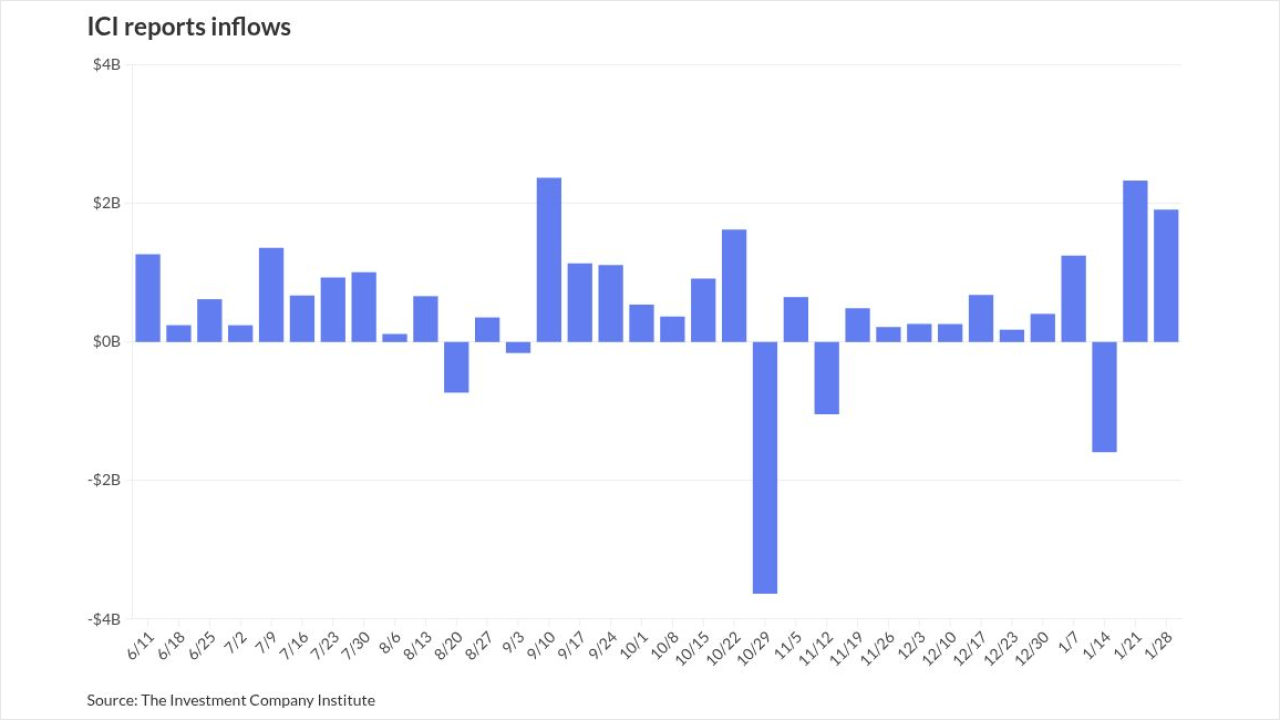Houston Airport System expects to lower interest costs through an $835 million bond sale this week as it plans for a post-pandemic recovery.
The bonds are pricing in three series on Wednesday and Thursday through senior manager Morgan Stanley.

The $135 million of tax-exempt Series A are subject to the alternative minimum tax provisions of the Internal Revenue Service and will refund commercial paper, with maturities tentatively running through 2047.
Series B bonds of $75 million are tax-exempt non-AMT bonds maturing through 2030 and refunding variable rate debt obligations issued in 2010.
The $625 million Series C will be taxable and refund previously issued bonds for savings with maturities through 2032.
Morgan Stanley executive directors Stephanie Henning, Ira Smelkinson, and Blaine Brunson are lead bankers on the deal.
Masterson Advisors managing director Trey Cash and director Tina Arias-Peterman are co-financial advisors with RSI managing partner Pam Mobley.
Bracewell is co-bond counsel with West & Associates.
The Houston Airport System has about $2 billion of outstanding subordinate lien debt, according to the preliminary official statement. The system has no senior-lien debt.
The bonds carry ratings of A1 from Moody’s Investors Service and A from S&P Global Ratings.
“The stable outlook reflects the strong liquidity available to withstand a recovery that is slower than the system's expectations and Moody's expectation that enplanements will recover enough over the next 24-26 months to maintain historic financial metrics,” Moody’s analyst Earl Heffintrayer said.
The system’s 950 days cash on hand would cover more than 24 months of operating expense and post-refunding debt service with no revenue, per Moody’s.
HAS will use $96 million of its $200 million CARES act proceeds to pay debt service in fiscal 2021, which is considered in Moody's calculations of liquidity and demonstrates active management to mitigate costs increases to airlines, Heffintrayer said. CARES is the Coronavirus Aid, Relief, and Economic Security Act, a $2.2 trillion economic stimulus bill signed into law on March 27,
The system operates three Houston Airports: Bush Intercontinental, or IAH, the largest; Hobby International or HOU; and Ellington Airport, shared with the U.S. Air Force. Bush and Hobby have passenger service.
“Enplanements have fallen 58% at IAH and 56% at HOU through July compared to last year, and enplanement recovery at IAH will trail national recovery rates due to the large exposure to international and business travel,” Heffintrayer said. “Moody's also expects continued economic stress in Houston's sizable oil and gas economy, which will weigh on demand for air travel that will keep enplanements in fiscal 2021 between 20% and 45% of fiscal 2019 volumes.”
Both Bush and Hobby have undergone major bond projects in recent years as part of the airport system's 2018-22 capital improvement program.
“Leverage ratios are likely to weaken, as HAS looks to rely more heavily on debt to finance the $1.3 billion international terminal replacement project at Bush-Intercontinental,” Heffintrayer said. “HAS had previously planned to use some of its discretionary liquidity to fund the capital plan, but will now fund projects fully with debt, pay-go passenger facility charge collections and grants over the next couple of years.”
Airlines and airports have suffered economic shocks in the COVID-19 pandemic since March 11, but federal relief has replaced most of the lost funding as the airports cut costs and airlines downsized.
“The coronavirus crisis is not a key driver for this rating action,” Heffintrayer said. “We do not see any material immediate credit risks for Houston airport system. However, the situation surrounding coronavirus is rapidly evolving and the longer term impact will depend on both the severity and duration of the crisis.”
In a roadshow for the upcoming deal, airport officials projected a return to 2019 enplanement levels by 2024. Fiscal year 2021 that began July 1 is expected to set the low water mark.
Southwest Airlines, which dominates Hobby International Airport, plans to reduce flights by 35% in October, according to a recent announcement. Southwest expects to burn about $20 million of cash a day in the third quarter. Chief executive Gary Kelly said last week that full recovery for the industry could take a decade.

United Airlines, the dominant carrier at Bush Intercontinental, plans to lay off more than 16,000 employees Oct. 1, including 2,850 pilots and 6,920 flight attendants. United, which merged with Houston-based Continental Airlines in 2010, is one of the Houston-area’s top 10 employers with nearly 15,000 employees.
United, Air France and Qatar Airways resumed international service from IAH as of Sept. 2, according
"We are an international city with an economy that thrives on global connectivity," Houston Mayor Sylvester Turner said. "These significant steps in restoring air service will help Houston begin to recover from the economic challenges created by the COVID-19 pandemic."
The Bush Intercontinental bond project includes airfield reconstruction projects for larger aircraft, installation of more aircraft gates, and improved terminal facilities.
The major IAH terminal project scheduled in the five year capital improvement plan redevelops the Mickey Leland International Terminal with more gates capable of handling large wide-body aircraft.
The Terminal C North project at IAH opened in March 2017 with 11 new gates. Additional components of the 2018-2022 program include some taxiway upgrades, the modernization program of Terminal A, and other improvements.
Projects at Hobby include construction of a new Southwest hangar on the south airfield, conversion of the existing hangar into a cargo facility, relocation of the Airport Maintenance Complex and some taxiway improvements.
Construction of a new air traffic control Tower is underway at Ellington. Future projects consist of developments in infrastructure to support Phase I of the Spaceport program as well as construction of new taxiways and roadway rehabilitation.
The FY 2018-2022 Airport Facilities CIP combines various funding sources including the Airports’ Improvement Fund, Airports’ Renewal and Replacement Fund, grants from the Federal Aviation Administration, Commercial Paper and General Airport Revenue Bonds, and passenger facility charges.
The airport system has not changed the timeline for its capital improvement program but does expect to make adjustments due to the pandemic, according to Moody’s.
“The combined credit effects of these developments are unprecedented,” the agency said. “The airports sector has been one of the sectors most significantly affected by the shock given its sensitivity to consumer demand and sentiment.”





